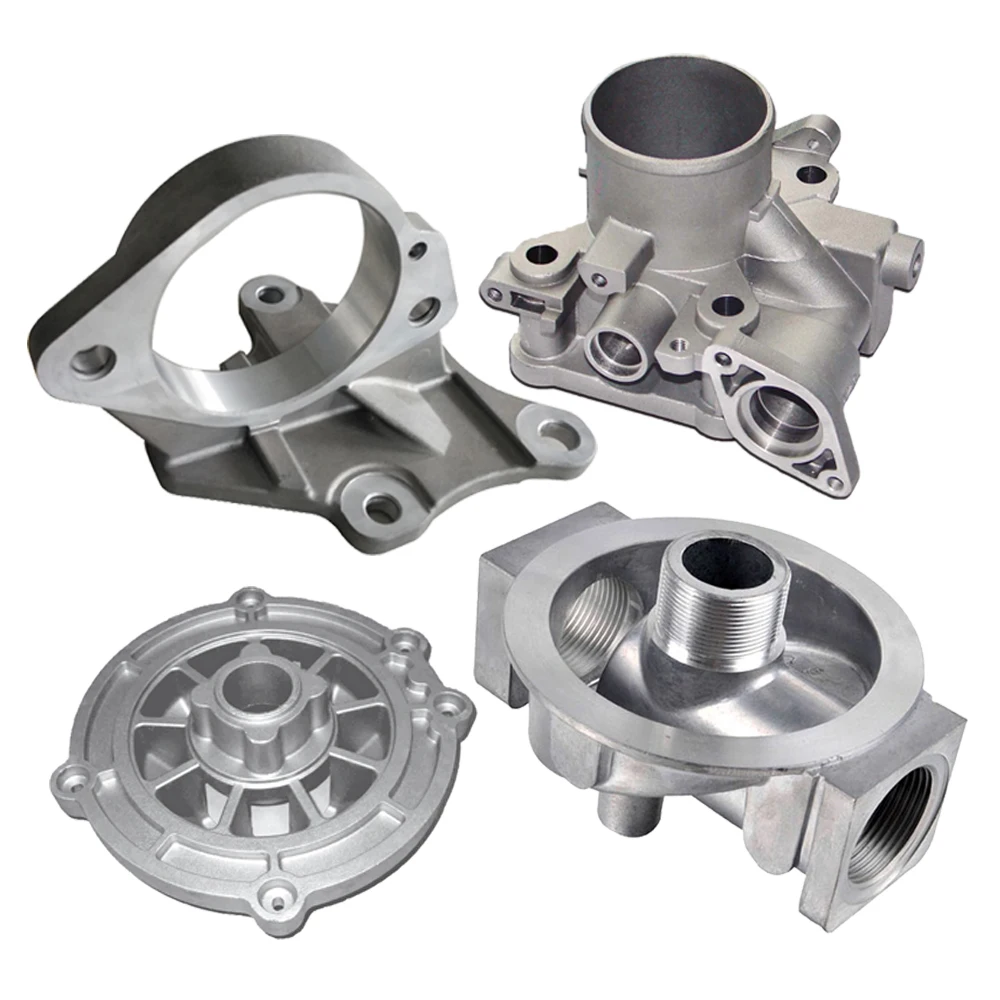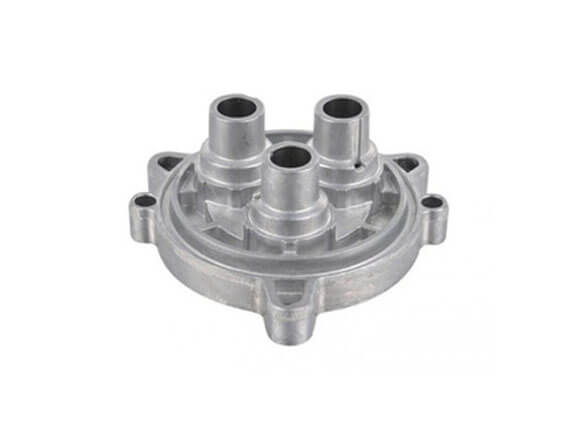Discovering the Role of Shop Providers in Progressing Modern Design Solutions
Shop services are necessary in forming modern engineering services - Aluminum Foundry. They connect the gap between typical manufacturing strategies and the demands of contemporary markets. With advancements in automation and sustainability, foundries are advancing to fulfill the needs of sectors such as aerospace and automotive. This change increases concerns regarding the ramifications for materials, procedures, and future developments. What obstacles and chances lie ahead for shop solutions in this rapidly transforming landscape?
The Development of Factory Services in Engineering

The integration of computer-aided style (CAD) and simulation software has reinvented the layout and production procedures, allowing foundries to generate complicated geometries with higher precision. The shift in the direction of green practices has led to the fostering of greener innovations and recycling efforts within foundries. As sectors increasingly focus on personalization and rapid prototyping, foundry solutions have actually expanded their abilities, ensuring they remain necessary factors to the engineering landscape. This evolution underscores the shop's essential duty in supporting developments throughout numerous sectors, including automobile, aerospace, and energy.
Secret Procedures and Strategies in Modern Foundries
Modern shops utilize a selection of crucial processes and techniques that enhance the performance and quality of steel casting. Among these, sand spreading remains widespread because of its adaptability and cost-effectiveness. Making use of sophisticated modern technologies, such as computer-aided design (CAD) and computer-aided production (CAMERA), permits precise modeling and manufacturing, making certain high precision in component measurements. In addition, financial investment spreading is favored for generating complicated geometries with outstanding surface area coatings.
Moreover, automation and robotics boost production rate and uniformity while reducing labor expenses. Methods like additive manufacturing are increasingly incorporated to produce complex mold and mildews and cores, consequently decreasing product waste. The application of thermal evaluation aids in enhancing casting processes by controlling and predicting solidification habits. Jointly, these procedures and methods exhibit how modern-day factories are adjusting to satisfy the demands of modern design challenges, making certain superior product high quality and functional efficiency.
The Relevance of Products Selection in Foundry Providers
Selecting the proper products is essential in foundry services, as it directly affects the mechanical residential properties, toughness, and total efficiency of the end product. Various products possess unique qualities, such as tensile strength, deterioration resistance, and thermal security, which have to line up with the desired application of the actors components. Steels like light weight aluminum and steel are typically selected for their strength-to-weight ratio, while alloys can boost details performance characteristics.
The choice procedure involves considering variables such as manufacturability, availability, and cost, which can especially influence task timelines and budget plans. Additionally, improvements in material science allow the development of ingenious compounds and specialized alloys that accommodate arising design obstacles. Consequently, a detailed understanding of product buildings and their implications is necessary for engineers and foundry specialists to accomplish effective outcomes in their jobs. This mindful option process inevitably improves the dependability and performance of the end items.
Foundry Services in Aerospace and Automotive Applications
Shop services play an essential role in the aerospace and vehicle industries, where accuracy and performance are critical. These industries count greatly on the manufacturing of complicated components that should satisfy rigorous quality standards and withstand extreme conditions. Foundries provide vital solutions such as spreading, machining, and completing, making sure components are lightweight yet robust, vital for enhancing gas effectiveness and safety and security.
In aerospace, shop services add to the production of turbine blades, engine components, and architectural parts, every one of which demand high-performance materials and intricate layouts. In the automotive industry, shops provide engine blocks, chassis components, and transmission more tips here situations, focusing on sturdiness and weight decrease.
Advanced factory strategies, including additive production and precision casting, are significantly utilized to meet the certain demands of these markets. By offering tailored options, shop solutions aid drive technology and keep competitive benefits in the fast-evolving aerospace and automobile landscapes.
Technologies Driven by Foundry Capabilities
Countless technologies in engineering are fueled by the sophisticated capacities of shop solutions. These services allow the production of complex geometries and high-performance products that are essential for modern-day applications. Additive manufacturing, frequently understood as 3D printing, has seen significant innovations through factory strategies, permitting for the rapid prototyping of intricate styles. Additionally, the ability to cast lightweight alloys has changed sectors such as aerospace and auto, leading to enhanced fuel effectiveness and efficiency.
Foundries are increasingly integrating clever technologies, such as automation and information analytics, to boost manufacturing performance and quality control. These innovations not just decrease waste yet also allow personalization at range, satisfying the details needs of customers. By leveraging advanced foundry capabilities, engineers can discover brand-new frontiers in product layout and functionality, inevitably driving progress throughout various industries and developing a structure for future developments.
Future Trends in Foundry Solutions and Engineering Solutions
The future of foundry solutions is shaped by arising fads such as sustainable production practices, which focus on environmental responsibility. Automation and wise innovations are readied to boost effectiveness and accuracy, while increasing personalization and adaptability will fulfill the progressing needs of customers. As these fads advance, they will redefine the landscape of engineering services in the shop industry.
Lasting Production Practices
As markets increasingly prioritize environmental duty, lasting production techniques within factory solutions are becoming important to contemporary design solutions. These techniques concentrate on lessening waste, lowering energy usage, and using eco-friendly materials throughout the production process. visit this web-site By executing methods such as recycling scrap metal and maximizing melting procedures, factories can notably reduce their carbon footprint. Additionally, the fostering of life process analyses allows makers to review the environmental effect of their products from inception to disposal. Teaming up with suppliers devoted to sustainability even more enhances the effectiveness of these campaigns. Ultimately, welcoming lasting manufacturing not just aligns with global environmental objectives however also cultivates advancement and competition in the quickly progressing engineering landscape.
Automation and Smart Technologies
While numerous sectors are accepting technological innovations, shop solutions are experiencing a considerable change through automation and smart innovations. The combination of robotics and automated systems improves production performance, minimizes human mistake, and speeds up the production procedure. Smart modern technologies, such as IoT and AI, allow real-time surveillance and anticipating upkeep, which maximize operational performance and minimize downtime. These improvements promote data-driven decision-making, permitting factories to respond swiftly to market needs and boost item high quality. In addition, automation decreases labor prices and improves work environment safety and security by managing hazardous jobs. As shop solutions remain to embrace these innovations, they are positioned to redefine design services, resulting in enhanced competitiveness and sustainability in the production sector.
Modification and Adaptability Patterns
Emerging trends in foundry services progressively stress customization and versatility to satisfy unique customer demands. This shift reflects a wider need for customized engineering solutions that adjust to specific job needs and industry requirements. Companies are buying advanced modern technologies, such as additive manufacturing and digital modeling, allowing them to generate personalized components efficiently and cost-effectively. As an outcome, foundries are moving away from one-size-fits-all strategies, providing customers the capability to customize layouts and products in real-time. In addition, partnership in between design teams and factory services is becoming much more integrated, promoting development and speeding up time-to-market. This trend not just boosts item performance yet likewise sustains sustainability by minimizing waste with precise manufacturing processes.
Regularly Asked Inquiries
What Are the Normal Costs Linked With Foundry Services?
Typical costs linked with foundry solutions include material costs, labor fees, equipment use charges, and overhead expenses - Aluminum Casting Company. These expenses can vary widely based upon project intricacy, volume, and certain requirements of the design remedy included
For how long Does the Factory Refine Usually Take?
The shop procedure usually takes anywhere from a number of weeks to a few months, depending upon elements such as intricacy, material demands, and manufacturing quantity, which can considerably influence timelines and overall job distribution.
What Industries Advantage The Majority Of From Factory Services?
Industries such as automotive, aerospace, and construction advantage significantly from factory solutions. These fields depend on precision spreading and metal fabrication to produce complicated components, boosting item performance and functional performance in their particular applications.
What Certifications Should Shops Possess?
Factories ought to have certifications such as ISO 9001 for top quality administration, ISO 14001 for ecological management, and specific industry certifications like AS9100 for aerospace or IATF 16949 for automobile, guaranteeing compliance and top quality assurance.
How Do Foundries Make Certain Quality Assurance in Their Processes?

Foundry services are important in forming modern engineering services. As design disciplines have advanced, the function of foundry services has changed significantly to fulfill developing sector demands. As industries increasingly prioritize modification and rapid browse this site prototyping, foundry services have increased their capacities, ensuring they remain essential contributors to the design landscape. As markets progressively prioritize environmental obligation, sustainable manufacturing practices within foundry solutions are ending up being necessary to contemporary engineering remedies. Additionally, collaboration in between engineering teams and factory services is coming to be extra incorporated, fostering development and accelerating time-to-market.